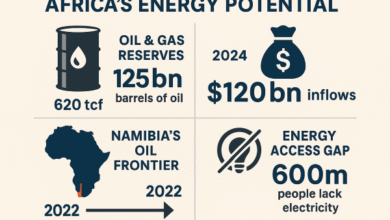Sasakawa Africa, Islamic Development Bank, others meet for green revolution
 Sasakawa Africa Association (SAA), the renowned international agricultural organization says it will support state governments in Nigeria to achieve a Green Revolution in the agricultural sector.
Sasakawa Africa Association (SAA), the renowned international agricultural organization says it will support state governments in Nigeria to achieve a Green Revolution in the agricultural sector.
Dr Godwin Atser, SAA Country Director reiterated SAA’s commitment in Abuja, at the end of a meeting between SAA, the Islamic Development Bank (IsDB), and the Kano State Agro-pastoral Development Project (KSADP).
Representatives of the Zamfara government were present were also present at the meeting.
Atser who spoke with the News Agency of Nigeria (NAN) after the meeting said agricultural development in Kano is experiencing a revolutionary development through the ongoing collaboration between SAA and KSADP.
He urged the Zamfara government and other state governments in Nigeria to avail themselves of the opportunity offered by SAA by entering into agricultural partnerships.
“At Sasakawa we are willing to support Zamfara State to transform their agriculture so that jobs can be created.
“This meeting is also for SAA to come and share the success story in Kano, how it (SAA) went about it so that Zamfara can also put together their proposal for funding by IsDB,” Atser said.
The SAA Country Director said that agricultural transformation was urgently needed to help transform rural communities, improve livelihoods, and tackle criminality.
He commended the IsDB for organizing the roundtable for SAA to share its success story in Kano State to colleagues from Zamfara state.
“Zamfara can now learn from what is happening in Kano State to establish a linkage with SAA, while leveraging the support of IsDB in terms of funding,” Atser said.
According to him, the SAA’s Kano project is about 30 months old and is recording huge success as well as making a big positive difference in Kano’s agricultural environment.
In his address earlier, Mr Javed Khan, the Operations Team Leader, Islamic Development Bank Regional Hub of Abuja, said the bank always supports states using assistance from relevant agricultural organizations while applying for its agricultural loan.
Khan said the advantage of entering into a partnership with such organizations like SAA is the fact that such loan beneficiaries would be guided by agricultural experts with informed strategies in making their ventures very successful at the end of the day.
In his presentation at the meeting, Abdulrasheed Hamisu, Project Coordinator KSADP/SAA said the Kano project which began in March 2021 would end in 2025, and has made excellent progress in meeting the targets set in the results framework.
Hamisu said the project aimed to benefit 450,000 farmers in the 44 local government areas of Kano, and had added more than 850,000 metric tonnes of grains.
He said crops of interest in the five-year project are rice, maize, sorghum, millet, tomato, cabbage, and onions.
Hamisu said that among the activities of SAA is to leverage the use of information and communication technologies in developing the capacities of the state extension system to generate, disseminate and share knowledge with farmers.
In his own speech, Ibrahim Muhammad, State Project Coordinator for KSADP reiterated that the project was financed by IsDB, adding that it cuts across both crops and livestock farming.
Muhammad said that during the formulation of the project, KSADP “ran through the history” by making use of lessons learned from past agricultural projects.
“We understood during the Fadama programmes as well as other projects, that the Project Management Unit alone could not handle the implementation of technology transfer to the farmers because of the limited number of the staff that are managing the projects.
“As you all know, technology is the prime mover of development and technology cannot be taken to the farmers without effective extension delivery,” he said.
Muhammad added that it was on that basis that the Kano government hired the services of Sasakawa, a renowned international NGO that has a track record of extension implementation in the state.
“And today, we are glad we made the right choice because Sasakawa has performed excellently well,” he said.











